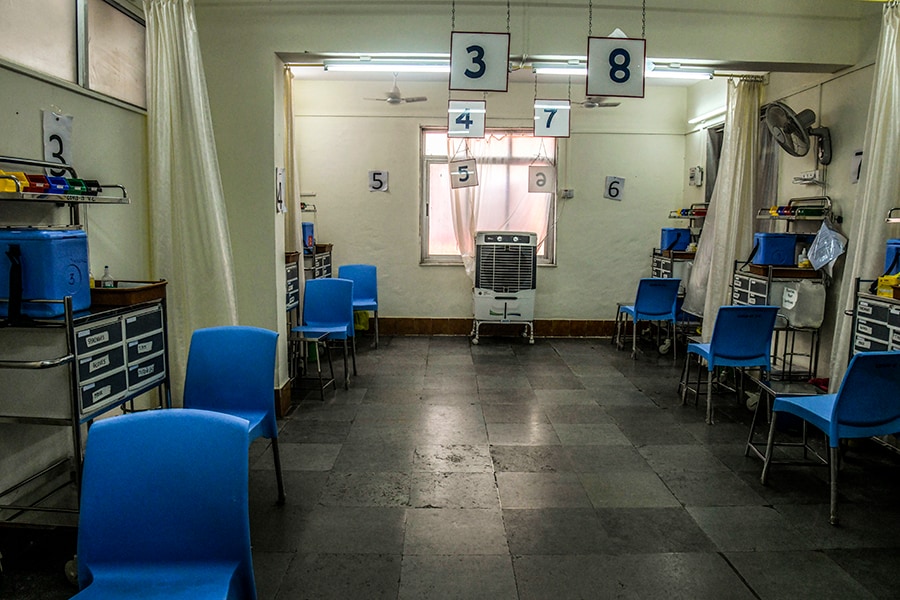The answer to that question is a matter of urgent interest in India, where a second wave of infection has left a tableau of death and despair, but it may also have big implications for other countries battling the pandemic.
India is a critical supplier in the global effort to vaccinate people against the coronavirus, and its struggles to roll out enough vaccine for its own 1.4 billion people are being closely watched abroad.
In Africa, especially, ripples from the Indian crisis are already being felt.
Health officials on the continent who had been counting on vaccine shipments from India learned just weeks ago that they may not be arriving when expected. India’s prime minister, Narendra Modi, suspended exports of nearly all 2.4 million doses of the AstraZeneca vaccine produced daily by its top vaccine company, the Serum Institute of India.
Now they will be used in India instead.
But even with that shift, as well as a scramble by India’s pharmaceutical industry to ramp up production — including an agreement to make the Sputnik vaccine developed by Russia — the effort to get as many Indians vaccinated as possible has been terribly outmatched by the speed of the virus ravaging the country.
“You can’t vaccinate your way out of a surge," said Dr. Celine Gounder, an infectious disease expert who is a professor at New York University Grossman School of Medicine.
Even if India could somehow solve its vaccine supply problem quickly, Gounder and others said, it might not help — at least, not in the short term. Vaccines take two weeks for the first dose to have an effect and require an interval of about four weeks between the first and second dose.
The median incubation period for the virus, by contrast, is four to five days — meaning vaccinations will not necessarily avert infections.
India’s Health Ministry on Thursday reported more than 375,000 cases and more than 3,600 new deaths. With the death toll already put at more than 204,000, hospitals warned of critical shortages of ventilator beds, medical oxygen, medicines and other lifesaving supplies.
“The ferocity of the second wave did take everyone by surprise," K. Vijay Raghavan, the principal scientific adviser to the government, said in an interview published Thursday in The Indian Express newspaper. “While we were all aware of second waves in other countries, we had vaccines at hand, and no indications from modeling exercises suggested the scale of the surge."
A New York Times database of vaccination progress showed that as of Thursday, about 26 million people — 1.8% of India’s population — had been fully vaccinated. That is a better rate than some mostly poor countries where practically no one has been vaccinated, but it is still among the world’s lowest.
In the United States, by contrast, where the government has spent billions of dollars to secure vaccines, the figure is 30%. And even in Brazil, where the virus has caused an especially acute health and hunger crisis, 5.9% of the population has been fully vaccinated.
Modi’s goal of vaccinating 300 million people by summer is looking increasingly unlikely.
Dr. Peter Hotez, a molecular virology professor at Baylor College of Medicine in Houston, said one of India’s basic problems is simply not having the supply of vaccine it needs. “They’ve never been scaled before to a level like this," he said.
The Serum Institute and other vaccine manufacturers in India must now produce hundreds of millions of doses, he said.
How long might it take for India’s vaccine-makers to ramp up production?
“You’re talking weeks, if not longer" said Gounder, the infectious disease expert, who is the host of two podcasts, “Epidemic" and “American Diagnosis."
In New Delhi, it was clear that frustration and delays among vaccine centers were intensifying.
Dr. Aqsa Shaikh, who runs one of those centers, said she had emailed the Serum Institute this week asking for doses and received a stunning response: The company is so overwhelmed with demand, it could take five or six months for the center to get the 3,000 doses per month it requested.
As grim as India’s coronavirus numbers are — and experts warn that its reported death toll could be a significant undercount — its vaccination program was supposed to be a bright spot.
Before the pandemic, India ran the world’s largest immunization program, delivering routine vaccinations to 55 million people a year. After the coronavirus began spreading, the Serum Institute aimed to become the vaccine manufacturer for the world, pumping out tens of millions of AstraZeneca doses at its factories in the western city of Pune.
But after an initial fast rollout, averaging some 3 million injections a day, India’s vaccination drive slowed. On Thursday, the Health Ministry said that it had administered fewer than 2.2 million doses in the previous 24 hours.
Despite cash infusions from Modi’s government, India’s major vaccine companies are struggling to increase production.
The Serum Institute is producing about 60 million doses a month, and another Indian company, Bharat Biotech, is making about 10 million doses a month of its Covaxin shot. A third company has signed an agreement to produce Russia’s Sputnik V vaccine later this year.
But that is a fraction of what India needs to inoculate every adult — some 940 million people.
“It is like inviting 100 people at your home for lunch. You have resources to cook for 20," Dr. Chandrakant Lahariya, a public health researcher, said on Twitter.
Already, health providers say they are running out of vaccines. Many Indians who have received one shot say they are having trouble getting a second.
“You feel like you are being cheated," said Aditya Kapoor, a New Delhi businessman who said he had been turned away from two clinics when he went to get his second dose. “We are as vulnerable as we were on day one."

